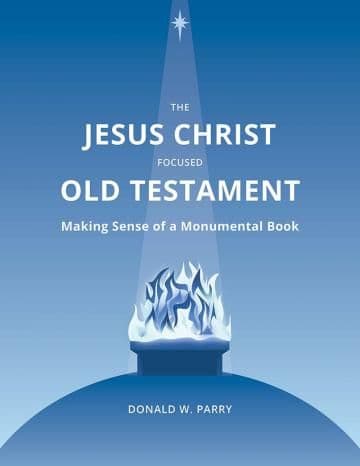Book
56 Chapters

The LDS Bible Dictionary explains, “Under the law of Moses, sacrifices were varied and complex, and a multitude of rules were given to govern the procedure, in keeping with the general character and purpose of the Mosaic law. . . . In all the animal sacrifices of the Mosaic law there were six important acts.” The entire six-part process of the animal sacrifices focused on Jesus Christ and His Atonement, because sacrifices were offered to direct worshippers’ thoughts to Jesus.
In act 2, for example, the offerer laid his hands on the animal’s head, thus transferring his sins to the animal. The symbolism of laying on of hands is explained in Leviticus 16:21, where Aaron lays his hands on the scapegoat: “And Aaron shall lay both his hands upon the head of the live goat, and confess over him all the iniquities of the children of Israel, and all their transgressions in all their sins, putting them upon the head of the goat.” After the offerer’s sins were transferred to the animal, it was slaughtered in act 3.
Acts 2 and 3 teach us about Jesus. He first took upon Himself our sins in Gethsemane and then was sacrificed when He died upon the cross. Each of the six acts held some significance with regard to the Atonement.
The accompanying chart lists these six acts, together with a brief explanation of each. Note that worshippers conducted acts 1–3, and the priests performed acts 4–5. Act 6, partaking of the sacrificial meal, pertained either to priests alone, to worshippers and priests, or to priests and their families.[1]
Action Number | Action | Three Acts |
|---|---|---|
1 | Presentation of the Sacrifice | The worshipper presented the sacrifice at the door of the temple or on the north side of the altar (Lev. 1:3; 3:2). |
2 | Laying on of Hands | The worshipper laid his hands on the sacrifice to consecrate the offering to God and to make the sacrifice the offerer’s substitute (Lev. 1:4; 16:21; cf. Num. 8:10; 27:18, 20). |
3 | Slaughter of the Animal | The worshipper slaughtered the animal, an act that pointed to Jesus’s sacrifice; later in history, the priests performed the sacrifice. |
Action Number | Action | Three Acts |
|---|---|---|
4 | Sprinkling or Pouring of the Blood | For most animal sacrifices, the priest collected the victim’s blood and sprinkled a portion of it on the sides of the altar and poured the remainder at the altar’s base (Ex. 29:12; Lev. 1:5; 3:2; 4:7; 8:15; Num. 18:17; cf. Lev. 17:11). |
5 | Burning of the Sacrifice | Depending on the sacrifice, the priest burned all or part of the animal on the altar. |
6 | Partaking of the Sacrificial Meal | Participants of the sacrificial meal included (depending on the sacrifices): 1. Worshippers and priests (in the case of the peace offerings; Lev. 7:11–36) 2. Only the priests and their families (Lev. 10:14; 22:10–12; Num. 18:14) 3. Only the priests (Lev. 6:16, 26; 7:6; 24:9) |
Book
56 Chapters
Items in the BMC Archive are made publicly available for non-commercial, private use. Inclusion within the BMC Archive does not imply endorsement. Items do not represent the official views of The Church of Jesus Christ of Latter-day Saints or of Book of Mormon Central.